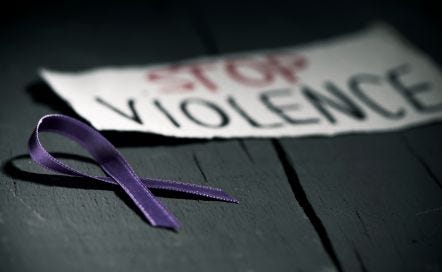What is Gender-Based Violence?
Few things in this world are unacquainted with boundaries – national, international, or otherwise - the natural elements - that is, water, air, fire, migratory birds and beasts, and
gender-based violence.
Gender-based violence is the most prevalent and serious violation of human rights worldwide – more chronic than the coronavirus, more widespread than the common flu, and more malignant than a brain tumor. It is the great equalizer of all nations. And no, we don’t talk about it like we should.
First things first, let’s dive into understanding what this term gender-based violence means, what it entails. While nations and organizations have their variations of the definition, at its core, gender-based violence is harm, or threats to harm, committed against a person(s) based on actual or perceived sex, gender, sexual orientation, gender identity or expression, or other such sex/gender related characteristics. Gender-based violence may include abuse, harm, and/or suffering perpetrated against a person’s will as follows:
physical,
sexual,
verbal,
emotional,
psychological,
financial,
economic.
It can also take the shape of threats of such acts, coercion, or arbitrary deprivation of liberty. It can occur in public or private life.
Who is at risk of experiencing gender-based violence?
People of all genders, sexual orientations, and gender identities may experience gender-based violence, but women and girls, as well as LGBTQIA,+ are impacted the most.
Historically, gender-based violence is rooted in a system of unequal power between women and men. It was birthed by gender inequality, but since then has climbed to its apex.
So, what tangible shape does gender-based violence take?
Domestic Violence: It includes all acts of physical, sexual, psychological, and economic abuse that occur within the family, domestic unit, or between intimate partners. These can be former or current spouses, even when they don’t share the same residence.
Intimate Partner Violence
Elderly Abuse
Other forms of abuse from one family member to another based on gender identity
Sexual Violence: It includes any sexual activity without consent, such as rape, attempted rape, sexual assault, molestation, sexual exploitation, and forced prostitution. It can happen in:
Private
Public
It also includes dating violence.
Stalking is the unwanted pursuit of another person using harassing or threatening behavior.
Workplace Discrimination and Harassment. When an employee or a job applicant is treated differently or less favorably because of their sex, gender identity, or sexual orientation. It includes, but is not limited to,
being held to different or higher standards, or being evaluated more harshly,
being paid less than a person of a different gender or sexual orientation who is similarly or less qualified, or who has similar (or fewer) job duties.
being denied a promotion, pay raise, or training opportunity.
being written up or disciplined for something that other employees of a different gender do all the time, but never get punished for.
being insulted, called derogatory names, or slurs because of gender identity.
being subject to unwelcome sexual advances, requests for sexual favors, or other verbal or physical harassment.
being rejected for a job, forced out on leave, or given fewer assignments because of pregnancy.
being intentionally or repeatedly called by a name or referred to as a different gender that the person doesn’t identify with.
Human Trafficking. This entails using force, fraud, or coercion to force someone into labor or sex work.
Child Abuse: It is harm or violence, including sexual violence, against a child because of their gender. This can happen within a domestic unit, at school, or in the public sphere.
Forced Marriage: Forced marriage means a marriage with 1 or more elements of force, fraud, or coercion, and where 1 or both parties do not or cannot consent to the marriage. It may occur when family members or others use physical or emotional abuse, threats, or deception to force you to marry without your consent. Forced marriage can be both a cause and a consequence of domestic violence, dating violence, sexual assault, or stalking.
Early/Child Marriage: Child marriage refers to any formal marriage or informal union between a child under the age of 18 and an adult or another child.
Reproductive Coercion: It is controlling someone’s reproduction by forcing pregnancy, forcing pregnancy termination, or tampering with birth control.
Female Genital Mutilation: It comprises all procedures that involve partial or total removal of the external female genitalia, or other injury to the female genital organs for non-medical reasons. It is nearly always carried out by minors. This practice is recognized internationally as a violation of the human rights of girls and women.
Honor Killings and other similar crimes: Most often, the murder of a woman or girl by male family members. The killers justify their actions by claiming that the victim has brought dishonor upon the family name or prestige.


